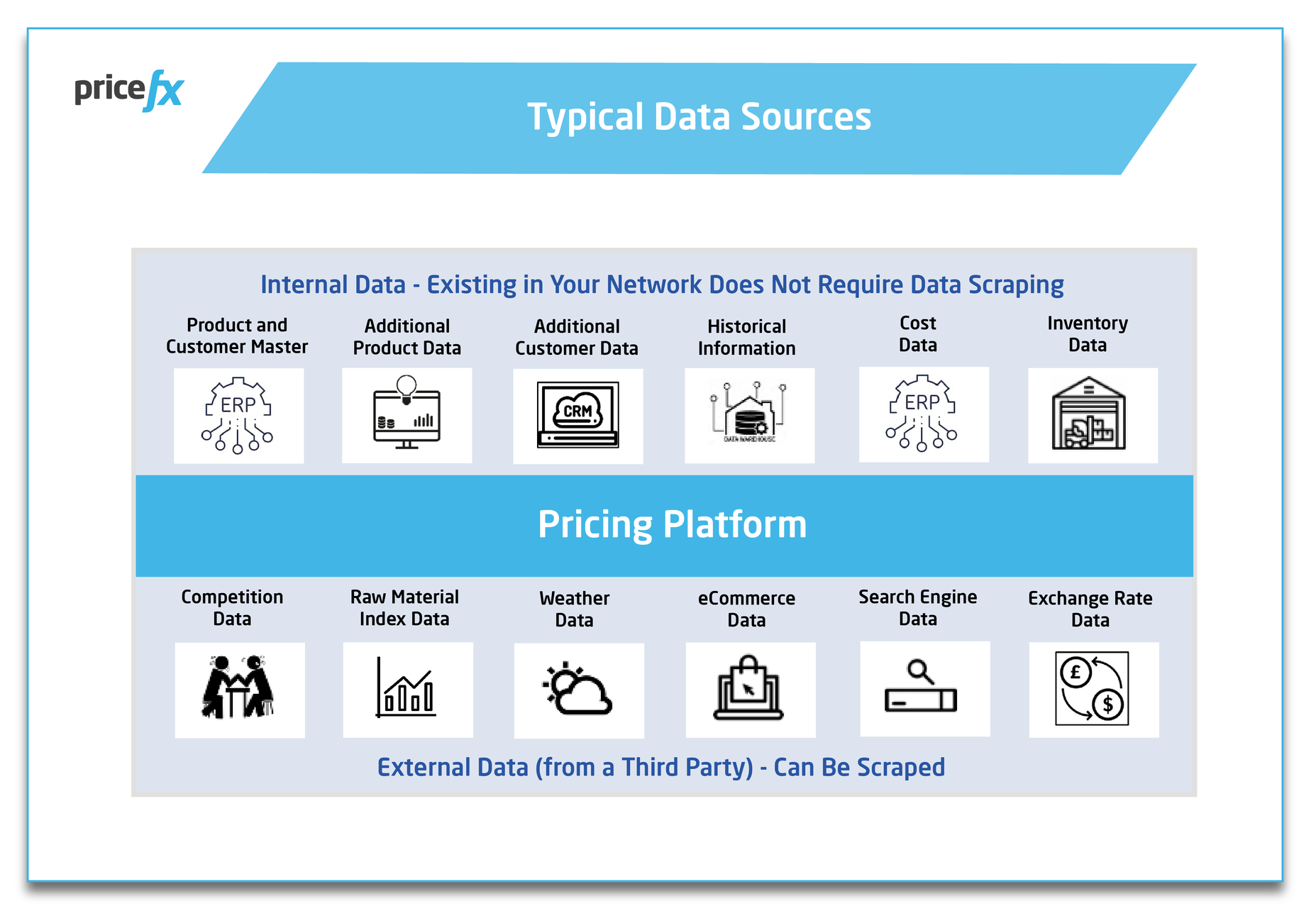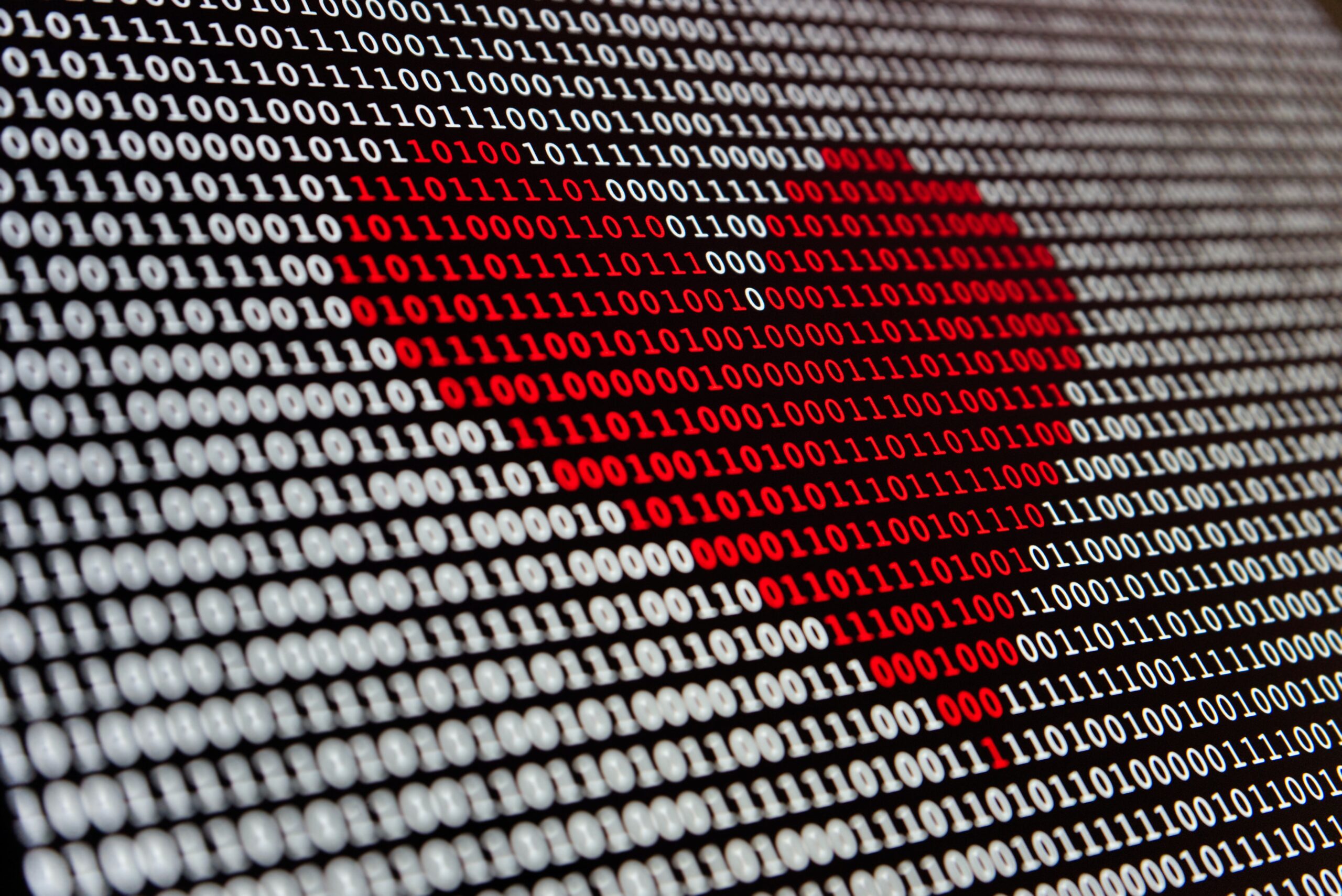What is Data Scraping and is it Right for You?
June 27th, 2022 (Updated 03/10/2023) | 10 min. read
There’s been a huge rise in demand in recent years for tools and services offering data for businesses via data scraping (sometimes also called ‘web scraping’) and similar techniques. With that sudden increase in both the amount of, and requests for data scraping assistance, there has been an accompanied rise in myths and misconceptions regarding data scraping. With this article, we have decided to examine the historical data misconception and other myths and tried to separate fact from fiction around data scraping to unearth if it is for you or not.
At Pricefx, helping companies implement their pricing software solutions is a huge part of what we do, and part of that process means answering all our customers’ questions about data scraping and recommending services as required.
At Pricefx, we want to make this clear from the outset.
We do not data scrape or provide data scraping services ourselves, but we do work closely with members of the Pricefx Advantage Partner Network who do, like tgndata among others.
So, let’s dive in and begin by defining what data scraping is, answer why historical data cannot be scraped, go through more data myths and legends that surround data scraping in the pricing software environment, and look at some good pricing software use cases for data scraping to check if it is for you or not.
What is Data Scraping? – The Definition
Many big companies and data scientists will use data scraping to extract data needed to help them make pricing decisions. It allows them to gather the right data required to uncover business opportunities, product development and market research (by tracking competitor prices).
Data scraping refers to the extraction of data from any open source (including a website).
This information is collected and then exported into a format that is more useful for the user, be it a spreadsheet or an API that can be used in integration with your pricing software.
Although data scraping can be done manually, in many cases, automated tools are preferred when scraping web data as they can be less costly and work at a faster rate.
So, data scraping is the collection of data which is generally publicly available from any website and can be retrieved in a systematic form.
The Answer to First Scraping Myth – ‘Can We Scrape Historical Data?’
In short, no, you cannot scrape historical data.
And why? Data scraping itself can only retrieve the information which is available on the web or other openly sourced material.

As we have stated above, data scraping from publicly available websites is used to gather intelligence of pricing of competitors’ products, product availability or for criminal justice purposes.
That means, you can only scrape your competitors’ websites for what their prices are today, not what they were yesterday.
In theory, if one of your competitors carried information on their website as to the price history of their products, certainly, you could scrape that data.
But how many websites carry information of what their prices were yesterday? Particularly in the current environment of high inflation and prices changing suddenly and rapidly upwards.
So, remember, data scraping only refers to data that can be accessed by anyone with an internet connection. If you can manage to find historical data on product price histories, sure, go ahead and scrape it but the chances are you will not find it.
10 Data Scraping Myths Debunked – True or False
It therefore seems quite clear that if a website or user makes the decision to make their data public, scraping it should be legal. However, so much confusion surrounds data scraping, we thought we should look at 10 other data scraping myths and provide you with the definitive true or false answers.
1. Data Scraping is Illegal – False
Possibly the most common misconception about data scraping is that it is illegal, which is incorrect. It is a perfectly valid technology and a great way to gather product and pricing intelligence from your competition on their publicly displayed websites. If you don’t need to hack the information, it’s not illegal.
On the other hand, questions arise about the legality of data scraping with how people choose to use the accessed data. Every website has its own set of rules, or Terms of Service, that you need to familiarize yourself with firsthand and follow during the data extraction process.
Any web data that is accessible without authentication, or login, is free for data scraping purposes without any legal implications ever since the famous HiQ vs LinkedIn case.
2. Any Website Can Be Scraped – Theoretically True, But Difficult
So, yes, in theory you can scrape data from any website, but it is becoming more difficult as many websites as taking to prevent it.
Each time you visit a website, you leave an impression, right? Meaning if you go to a website and you basically want to retrieve information, you must accept several things in a certain manner such as identifying yourself as a human being, and not a robot through reCAPTCHA. You must use the search function, and you have to click through the right product to see its price. Suddenly, you basically have clicked on the site four times and the website has already seen your IP address four times and can start to block it. Going through these processes gives the website several opportunities to limit data scraping.
What’s more, a website may seem easy to scrape, however, if it prohibits scraping or contains copyrighted data, then there’s nothing you can do with the data you spent time and effort extracting.
In some cases, websites also pose various obstacles to crawlers (such as denying web crawlers access to links displayed on the site’s pages) even while they are collecting publicly available information. Scraping data from such websites requires much more time and effort, and at the end of the day, you may need to consider if it is worth the time, resources, and effort involved.
3. Do You Need to Know How to Code to Data Scrape? – False
If you just want to scrape a few pages of data here-and-there, then of course, you can head to YouTube, find a few videos on how to scrape data with Python and you’ll be data scraping in no time. You can build these kinds of data scripts by yourself.
BUT, to scale that data scraping process up to a commercial level, you’ll need the assistance of a scraping software partner.
To learn more about how to choose the best pricing software partner to assist you in achieving your required business outcomes (including assistance with your data scraping needs), check out this handy article:
4. Data Scraping and Data Crawling Are the Same Thing – False
No – Data Scraping and Data Crawling are not the same thing.
Data Crawling (or web crawling as it sometimes referred to) means dealing with large data sets where you develop your crawlers (or bots) which crawl to the deepest nooks and crannies of web sites. Data scraping, on the other hand, refers to retrieving information from any open source (not necessarily the web).
5. Data Scraping Can Be Used to Access Emails Addresses – True in Theory, but very, very difficult
In theory, it may be possible to extract an email list from a website and data scrape them. But how many email lists do you know are publicly available on the web? Data Scraping can only access openly sourced information.
In short, yes, it is possible but not reliably so and it is an expensive process. Plus, you must be “in the know” with vast knowledge of scraping and even then, it may prove impossible (depending on the website you are trying to extract the data from).
6. Data Scraping is Fully Automated – False
Many people think data scraping is fully automated since it frequently uses scraper bots, but manual processes are also involved. Many data scraping projects are designed to run automatically, but human intervention is still required.
Human specialists regularly need to monitor the source websites for structural changes and manage the fixes and code modifications. For this reason, delegating the data sourcing responsibilities to a partner is beneficial to most businesses.
7. Scraped Data is Only Used by Businesses – False
Scraped data can be used for whatever legal purpose you want, including business, but note, it comes with caveats.
For example, it is perfectly legal to scrape data from websites for public consumption and use it for analysis. However, it is not legal if you scrape confidential information for profit. For example, scraping private contact information and selling it to a third party for profit is illegal.
What’s more, repurposing scraped content as your own without citing the source is not ethical either. You should try to follow the data scraping ‘best practice’ of no spamming, no plagiarism, or any fraudulent and unlawful use of data.
8. Data Scraping Can Be Cost Effective & Efficient – True
If you require large volumes of data scraped to fuel the business outcomes you want from your pricing, working with a partner can be advantageous, particularly if you are concerned that your in-house teams could potentially struggle with the large data requirements involved.

Working with a specialized solution partner can lessen the burden on your in-house data teams, saving you significant time and money.
9. Data Scraping Generates Highly Usable Data – True
Data Scraping can produce highly customized data sets to suit your unique set of business objectives, and enable valuable actionable pricing insights, enhancing your company’s performance and growth. Again, working with a partner (in the beginning at least), you bring you the results you want faster and more efficiently.
10. Data Scraping is Fully Scalable – True, but it Depends on Your Resources
Under the assumption you have unlimited resources, in theory at least, data scraping is fully scalable. Of course (and sorry to sound repetitive), working with an experienced partner team of data scraping experts that know the best and most efficient ways to access and extract web data at a scale that your in-house teams may not be able to match (as they are so busy doing other things), can often yield the most scalable results.
Now I Have the Data Scraping Myths Debunked – What’s Next?
Now you are a data scraping expert armed with answers to the most commonly held popular misconceptions and myths around the topic and if it is for you or not.
And you may have noticed a common theme begin to develop throughout this article. Unless your company has enough internal resources, or you have previous knowledge in data scraping on a commercial scale then you’ll be looking to work with an expert data scraping partner.
If you now realize that a data scraper is not what you need, then maybe it’s pricing software – price management software to be exact. In this article, we discuss what price management software is and whether or not it can help you reach your business goals.
On the other hand, if you’re already experienced in data scraping and you’re looking to stay one step ahead and adopt meaningful pricing insights with that data, then check out the article below that takes you through choosing the right pricing software for your company’s unique needs;

